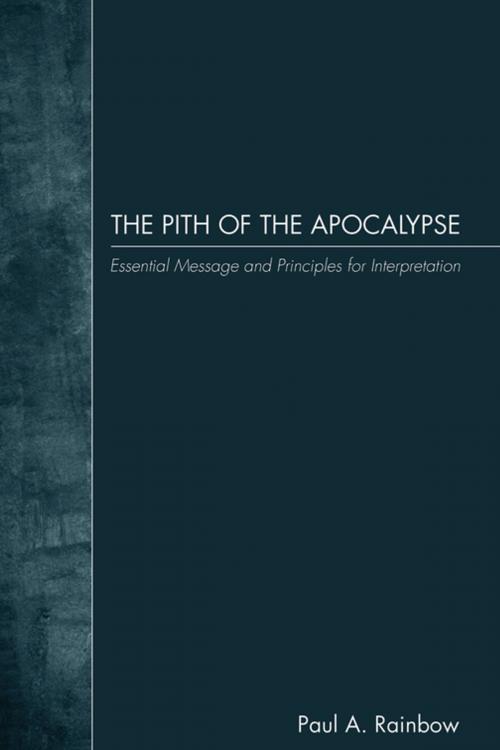The Pith of the Apocalypse
Essential Message and Principles for Interpretation
Nonfiction, Religion & Spirituality| Author: | Paul A. Rainbow | ISBN: | 9781498275187 |
| Publisher: | Wipf and Stock Publishers | Publication: | October 15, 2008 |
| Imprint: | Wipf and Stock | Language: | English |
| Author: | Paul A. Rainbow |
| ISBN: | 9781498275187 |
| Publisher: | Wipf and Stock Publishers |
| Publication: | October 15, 2008 |
| Imprint: | Wipf and Stock |
| Language: | English |
To serve God and Christ faithfully in the midst of a pagan society that exalts power, wealth, and pleasure is the tenor of the prophetic summons to the church in the book of Revelation. Unfortunately, this simple message, as potent today as it was at the end of the first century, is often obscured by misguided, if sincere, interpreters. The present book explores the background issues and lays out the principles that inform a sound approach to this enigmatic writing: its historical and cultural setting, its literary structure, its symbolic code, its core theological concepts, its scheme of last things, and its preachable and teachable points. In dialogue with dispensationalism on the one hand and with the skeptical criticism of it on the other, The Pith of the Apocalypse derives clues for cracking the Apocalypse from the book itself, viewed against the sweep of the biblical prophetic tradition that flowed into it, through the lens of methods widely accepted in mainstream New Testament scholarship. Readers will return to the book of Revelation itself with enhanced confidence, penetration, and understanding.
To serve God and Christ faithfully in the midst of a pagan society that exalts power, wealth, and pleasure is the tenor of the prophetic summons to the church in the book of Revelation. Unfortunately, this simple message, as potent today as it was at the end of the first century, is often obscured by misguided, if sincere, interpreters. The present book explores the background issues and lays out the principles that inform a sound approach to this enigmatic writing: its historical and cultural setting, its literary structure, its symbolic code, its core theological concepts, its scheme of last things, and its preachable and teachable points. In dialogue with dispensationalism on the one hand and with the skeptical criticism of it on the other, The Pith of the Apocalypse derives clues for cracking the Apocalypse from the book itself, viewed against the sweep of the biblical prophetic tradition that flowed into it, through the lens of methods widely accepted in mainstream New Testament scholarship. Readers will return to the book of Revelation itself with enhanced confidence, penetration, and understanding.















